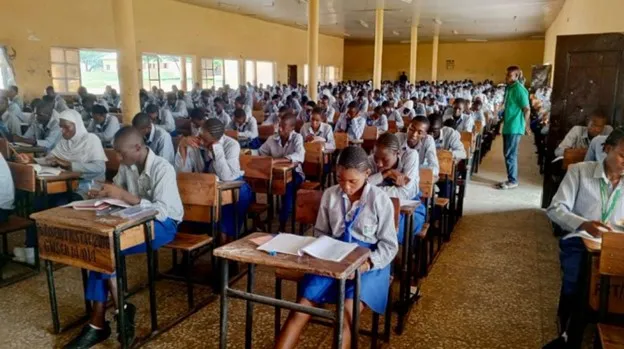Secondary school education is a transformative phase in a student’s journey, bridging primary education and higher education while preparing them for the challenges of adulthood. In an increasingly competitive world, this stage plays a critical role in shaping students’ academic, social, and professional futures. Here are the key reasons why secondary school education is indispensable:

1. Foundation for Higher Education
Secondary education equips students with the foundational knowledge needed for higher education and specialized training.
- Develops expertise in core subjects such as mathematics, sciences, literature, and social studies.
- Paves the way for university admissions, vocational training, or professional certifications.
- Facilitates access to scholarships and opportunities for further academic success.
2. Critical Thinking and Problem-Solving Skills
Through rigorous coursework, secondary schools foster essential skills for both higher education and the workforce.
- Encourages analytical reasoning and structured problem-solving.
- Subjects like mathematics and science challenge students to find practical solutions to real-world issues.
- Promotes informed decision-making, a valuable asset in any field.
3. Social and Emotional Development
Secondary school is a time for students to grow emotionally and socially, beyond academic learning.
- Interaction with peers, teachers, and mentors helps develop communication and teamwork skills.
- Offers a platform for self-discovery, confidence building, and responsibility.
- Participation in extracurricular activities fosters leadership, empathy, and emotional intelligence.
4. Workforce Preparation
In addition to academics, secondary education prepares students with skills needed for career readiness.
- Many schools offer vocational and technical programs for hands-on experience in fields like IT, healthcare, and trades.
- Teaches transferable skills such as time management, collaboration, and discipline, which are vital in any profession.
- Builds traits like creativity, adaptability, and reliability that employers value.
5. Civic Responsibility
Secondary education nurtures a sense of social awareness and responsibility.
- Teaches students about societal structures, human rights, and environmental sustainability.
- Encourages civic engagement and global citizenship through subjects like history and geography.
- Promotes values such as equality, justice, and respect for diversity.
6. Career Guidance and Exploration
Students are introduced to various career paths and opportunities during secondary school.
- Access to career counseling helps them identify their strengths and interests.
- Offers opportunities for internships, job shadowing, and exposure to real-world professions.
- Early career exploration aids informed decision-making about future education and job prospects.
7. Lifelong Learning Habits
Secondary school instills a mindset of continuous growth and adaptability.
- Encourages curiosity and a love for learning across a range of subjects.
- Prepares students to embrace new challenges in an ever-changing world.
- Lays the groundwork for flexibility and innovation, essential for lifelong success.
Conclusion
Secondary school education is a cornerstone for academic, personal, and professional growth. By offering a strong foundation for higher education, cultivating critical thinking, promoting social development, and preparing students for careers, it ensures their readiness to excel in life. Additionally, it instills values of civic responsibility, provides career guidance, and fosters a love for learning. Investing in secondary education is investing in a brighter, more capable future for students in a rapidly evolving world.


